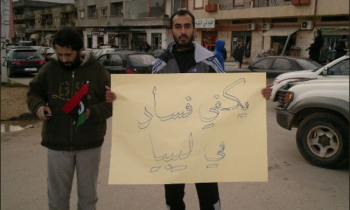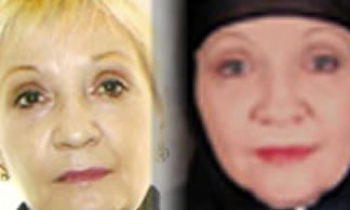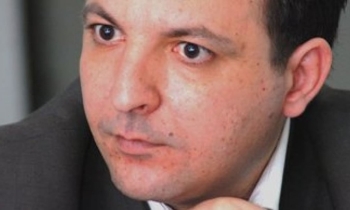AITARUN, Lebanon - We reached this demolished village by following a bulldozer with a Hezbollah driver plowing away the rubble blocking the road.
Minutes after our convoy of five press cars rolled into town, women, children, elderly men and disabled people began emerging from the ruins, pleading for escape from the bombing.
Their desperation to flee the war zone as the clock ticked down on Israel's "pause" in its bombing campaign was the saddest thing I've ever witnessed.
"What have these children done?" screamed Leila Hassan, 35, pointing at 15 children who stood crying under the shade of a corrugated metal roof that hung precariously off a building. The wailing children looked terrified and confused.
Hassan described moving from home to home for two weeks looking for any food left behind by those who were lucky enough to evacuate. This week, she said her children have survived on dirty water.
Covering this war is similar to a military operation. We meet in Tyre each day, discuss routes with local drivers and try to reach towns where the neediest are hiding. We listen for shelling and plan accordingly.
There are major obstacles. Bomb craters have made the main roads impassable. The threat of missile strikes on cars is a real concern.
When the blasts of artillery shelling land too close, we move to a quieter zone - which isn't easy to find.
At times, we are close to the targets Israel is hunting - like the two flatbeds parked in garages with anti-aircraft batteries mounted on them. They were covered by tarps that had slipped slightly, revealing the gun turrets. When we moved to snap a few pictures, a man materialized, seemingly from nowhere - and warned us to stop.
I asked one of the Lebanese men in our convoy if he was a Hezbollah fighter. "I'm not a fighter, I'm a spiritual student. I'm here to help these people," he answered.
Hezbollah members don't readily identify themselves, especially to Western journalists. The spiritual student and other men in the convoy fanned out through the neighborhood looking for survivors to load into the rickety cars. Others searched for vehicles to hot-wire and use to move people out.
As survivors massed in an intersection, men brought in delivery trucks and people scrambled to get on them. It was heartbreaking to watch old men and women, their backs curved by age, run and struggle to climb onto the vehicles.
We juggled our desire to document the horror with our instinct to help. At times there was no choice.
Alawiya Nasrallah, 75, tugged on my arm. "Please help me," she pleaded. "Come get my son. He can't move. He's crippled."
I followed her through a metal gate into her home. Her son Hussein Fakir, 43, was lying on the carpet, his back propped against the wall. She pointed to his wheelchair and explained that he suffered from muscular dystrophy.
With the help of two photographers, we hoisted Fakir onto the chair and lifted him down the steps of the house and helped move him to the intersection where people were being picked up.
His mother cried and showered us with praise, asking God to protect us and bless us.
Around the corner, where a giant mound of concrete slabs and metal blocked the road, journalists carried disabled people on their backs over the roadblock. There was an elderly man who lost his prosthetic leg in the rubble, a severely retarded dwarf, a dozen old women.
In the town center, nearly 250 people had gathered in a nervous wait for a rescue car. With the 48-hour cease-fire quickly expiring, they clamored for whatever space there was in the overflowing vehicles.
A man screeched onto the road in a red 10-foot delivery van with no seats. About 20 people - mostly screaming children - climbed in. Four of them, crushed against the back of the van where the window had been blown out, spotted their father on the road. He could not fit.
They immediately began to cry hysterically and stretched their arms out, nearly spilling out of the window as the van began to move. "Baba! Baba!" they screamed.
Their father, Mohamed Ashash, also began to cry. "Will my children be lost?" he asked no one in particular.
Once the known survivors had been moved out, we gathered our convoy to move back north to Tyre.
As dusk set in, we could hear the bombardments of the southern villages resuming and I wondered who was left behind.









